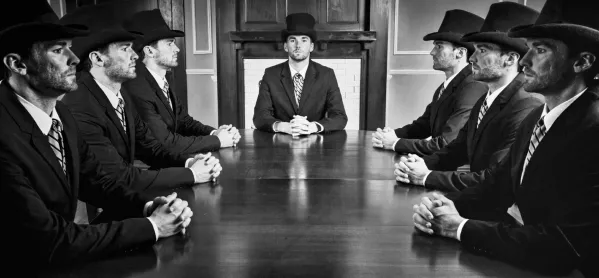- Home
- The solution to the endless uniform debate? Ditch it
The solution to the endless uniform debate? Ditch it

It was back in my school days when, reading Voltaire’s Candide, I first learned the Latin tag reductio ad absurdam (aka, "reduction to absurdity" ).
As it was explained to me, Voltaire was savagely attacking the Utopian view, expounded by his character Dr Pangloss, that “all is for the best in the best of all possible worlds”. Candide and Voltaire’s other unfortunate characters experience torture, famine, mutilation, earthquake, and near-death by burning at the stake as he demonstrates the absurdity of that philosophy.
That brings me to skirts, of course. Schools are banning skirts as part of school uniform, because of the trouble they cause. Some commentators reckon that ban should become nation-wide.
Skirts create problems for school uniform regulations. Girls have a habit of following fashion by rolling their skirts up until they’re very short – in the eyes of some, indecently so. But what is an acceptable length? How should the rule be enforced? By a return to the bad old days when schoolgirls were made to kneel on the floor so their skirt length could be measured? It’s tricky.
Then there’s the lobby that insists transgender pupils should wear skirts if they wish to. Some schools find this difficult: so removing skirts from the uniform list offers an easy way out. Let all wear trousers instead.
An easy way out? It’s a lazy way. To be sure, countless women and girls wear trousers from choice. Add the blazer (traditionally a male garment, few uniform manufacturers providing a more feminine cut), frequently a tie and a buttoned-up collar, however, and you’re forcing girls into male clothing.
I fear such insistence on “keeping things simple” with school rules risks making wrong decisions about the way we treat children. There’s something almost medieval in the idea of rendering uniform so prescriptive there can be no individuality or choice, apart from hairstyle: and, Lord knows, some schools are tough on that, too!
The danger was outlined this week by former DFE director-general Jon Coles, addressing a Teaching and Learning conference and criticising “no excuses schools”.
He described a “trend for a sort of ‘back to the workhouse’ view of education, where things that I would not think are OK for my children are being promoted as necessary for poor children.” He commented that private schools are often praised for turning out children with good social skills: “Why do they know how to behave well… where the rules aren’t very clear and there is a degree of ambiguity? …Because they have to deal with that ambiguity every day”. And they learn from it. He concludes that a “clear culture” is necessary for learning, but not an inflexible, inhuman one.
If we wish to conclude this seemingly endless debate, we face a choice. Either we decide that uniform, essentially a 19th and 20th Century phenomenon, has had its day and should now be ditched. Or we tighten up, remove gender-specificity and all opportunity for personal interpretation and put every schoolchild in Guantánamo Bay-style jumpsuits. Okay, they’re trousered: but otherwise, they’d be featureless and, well, truly uniform.
See what I did there? It was a reductio ad absurdam. Clever, eh? But then, we are discussing a system that’s rapidly becoming absurd.
It’s up to individual schools to set their uniform rules, though I wouldn’t send my child to one that took a draconian line. We don’t need politicians or journalists jumping on the bandwagon: we certainly don’t need Piers Morgan telling us he wouldn’t trust such teachers as far as he could throw them.
I’d hope schools would listen to their parents on such topics: but they must be free to make their own decision, even if I don’t like it. As Voltaire is alleged to have said, I disapprove of what you say, but I will defend to the death your right to say it.
Even, alas, on uniform.
Dr Bernard Trafford is a writer, educationalist and musician. He is a former headteacher of the Royal Grammar School, Newcastle, and past chair of HMC. He is currently interim headteacher of the Purcell School in Hertfordshire. He tweets @bernardtrafford
Keep reading for just £1 per month
You've reached your limit of free articles this month. Subscribe for £1 per month for three months and get:
- Unlimited access to all Tes magazine content
- Exclusive subscriber-only stories
- Award-winning email newsletters



